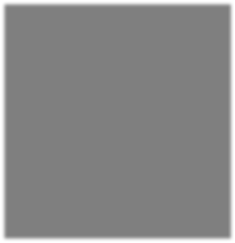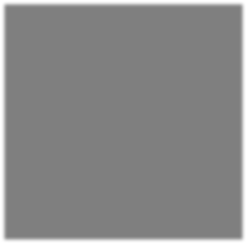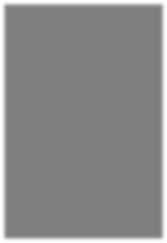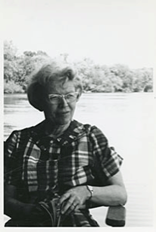
UNIT 1: COMPOSITION AS EXPLANATION
Sept 7, nothing changes except composition
Bring a favorite poem or memoir (full or selected). We'll use these for an in-class writing experiment.
READING:
--from Grapefruit by Yoko Ono
Yoko Ono's idea of license, the setting up of a situation where others could complete a work of art instead of the artist, was a radical departure from the existing concept of the role of the artist.
-Jon Hendricks
-Jon Hendricks
WRITING:
--in class: we will write a series of at least 10 instructions, recipes or propositions for a poem
TERMS/ISSUES:
form, content, labor, process, instructional writing, authorship
"what is seen, said & made" (JR)
what can an inherited or tradition form do?
what can it not do?
what happens when we invent or imagine or propose new forms and new procedures?


UNIT 2: WHAT IS SEEN
Sept 21 Imagism, Vorticism, Objectism
READING:
-- "Vortext" by Ezra Pound (JR)
The vorticist relies on this alone : on the primary pigment of his art, nothing else. Every
conception, every emotion presents itself to the vivid conscious in some primary form
-Ezra Pound
-- "Canto XXXIX" by Ezra Pound (JR)
-- "Projective Verse" Charles Olson (JR)
And the line comes, (I swear it) from the breath, from the breathing of the man who writes, and thus is, it is here that, the daily work, the WORK, gets in, for only he, the man who writes, can declare, at every moment, the line its metric and its ending—where its breathing, shall come to, termination.
–Charles Olson
–Charles Olson
It is the advantage of the typewriter that, due to its rigidity and its space precisions, it can, for a
poet, indicate exactly the breath, the pauses, the suspensions even of syllables, the juxtapositions even of parts of phrases, which he intends. For the first time the poet has the stave and the
bar a musician has had. For the first time he can, without the convention of rime and meter,
record the listening he has done to his own speech and by that one act indicate how
he would want any reader, silently or otherwise, to voice his work. –Charles Olson
WRITING:
-- thinking about what is seen, and how everybody is doing everything, about how to “use the machine as a scoring to [ones] own composing, as a script to its vocalization,” consider if “not the eye but the ear was to be [verse’s] measurer.” and recall the push towards the ideogramatic and objectism: a poem that presents, rather than comments upon. in other words, compose a piece inspired by Pound and/or Olson.
TERMS:
Imagism, Vorticism, materials, "projective verse," synchronicity, consciousness, composition by field, the object


UNIT 3: OBJECTIVISM
Sept 28 NO CLASS
READING:
--from "Discrete Series" by George Oppen (JR)
-- "Of Being Numerous" by George Oppen (BB)
-- "Mantis" by Zukofsky (JR 246)
-- "Mantis, An Interpretation" by Zukofsky (JR 248)
WRITING:
-- write a piece that works to think with the things as they exist.
TERMS/ISSUES:
Sincerity, objectification


UNIT 4: SURREALISM & DADA
Oct 19
READING:
--from The History of Surrealism Maurice Nadeau
--First Manifesto of Surrealism
--"Yellow Manifesto" by Salvador Dali, Andre Breton, Tristan Tzara, etc.
-- "Dada is American" by Walter Conrad Arensberg (JR)
--How to make a Dadaist Poem by Tristan Tzara
--Dada Excites Everything Andre Breton, Marcel Duchamp, Tristan Tzara, etc.
--Free Union André Breton (JR)
--Kurt Schwitters to the Swiss Dadaist Arp. Blackberries (2) Kurt Schwitters
--The and Rendez-vouz du Dimache 6 Fevrier 1916 by Marcel Duchamp (JR)
IN-CLASS:
Surrealist games and writing activities [Bring: scissors, images, words]
*Automatism
*Chain Games/Collaborative writing:
WRITING:
--Use Oct 12 in-class writing activities towards a "finished" piece
--Optional: write a manifesto. A manifesto is a public statement that sets forth the tenets of a forthcoming, existing, or potential movement or "ism" – or that plays on the idea of one.
TERMS/ISSUES:
Automatic writing, chance, DADA, surrealism, cut-ups, collage poetry, subconscious


UNIT 5: OULIPO, POTENTIAL LITERATURE
Oct 26 The Analytic: art as retrieval
READING:
-- "Oulipo: The First Manifesto" by Le Lionnais
Prisoner's Restriction: a russian con's economic missive Ian Monk
-- The Poet as Outlaw Harry Matthews
-- "Summary" from A Void Georges Perec
-- Lines read at Alix-Cleo Blanchett's and Jacques Roubaud's Bridal G.Perec
WRITING:
-- Locate a constraint in the Oulipo Compendium. In your own words, explain the constraint or process. Then, write a piece that practices the procedure. Write a process note at the top.
.
TERMS/ISSUES:
constraint, machine, potentiality


UNIT 6: ERASURE & ALTERED BOOKS
Nov 9
***bring a book to class to alter/erase, destroy, transform
***bring scissors, white-out, glue and permanent markers
READING:
-- Untitled Man Ray
-- from The Humument Tom Philips
-- from RAD I OS Ronald Johnson
-- from A Little White Shadow Mary Ruefle
-- from Travis MacDonald's The O Mission Repo
-- from Rosmarie Waldrop's A Key into the Language of America
-- from NETS Jen Bervin
-- from Zirconia Chelsea Minnis
-- 2 poems by Chicago Public School students
-- begin Voyager by Srikanth Reddy
WRITING:
--"write" a piece influenced/inspired by one of the day's readings
.
TERMS/ISSUES:
source text, palimpsest, erasure, altered books


UNIT 7: FOUND & “SOUGHT” POETRY
Nov 23 the documentary poem
READING:
Art is action, but it does not cause action: rather it prepares us for thought.
Art is intellectual, but it does not cause thought: rather it prepares us for thought.
Art is not a world, but a knowing of the world. Art prepares us.
-- Muriel Rukeyser from The Life of Poetry
-- "Johannesberg Mines" by Langston Hughes
-- "Hoyt Lakes / Shut Down," "June 19, 1982"
& "Francine Michalek Drives Bread" from Shut Up/Shut Down by Mark Nowak
& "Francine Michalek Drives Bread" from Shut Up/Shut Down by Mark Nowak
-- from The Fate of Humanity in Verse by Frank Rogecewski
-- from Testimony by Charles Reznikoff
-- Interviews about Testimony
-- Davidson, On Testimony and Documentary Culture
-- Excerpts from critical commentary on Testimony
-- Davidson, On Testimony and Documentary Culture
-- Excerpts from critical commentary on Testimony
-- from Book of the Dead by Muriel Rukeyser
-- background for Hawk's Nest Incident
-- transcript of Congressional Investigation
-- Hawk's Nest Tunnel archival materials
-- transcript of Congressional Investigation
-- Hawk's Nest Tunnel archival materials
WRITING:
--Write a poem/memoir using (or reimagining, recasting) the methods of Nowak, Reznikoff, Rukeyser or Rogecewski.
TERMS/ISSUES:
documentary poetry, populist poetry, political poetry
can poetry contain history?
can poetry make history?
How might the reader (and the writer) here act as investigator, transcriptionist, historian, witness, interpreter, confessor?


Reading & Writing Assignments



